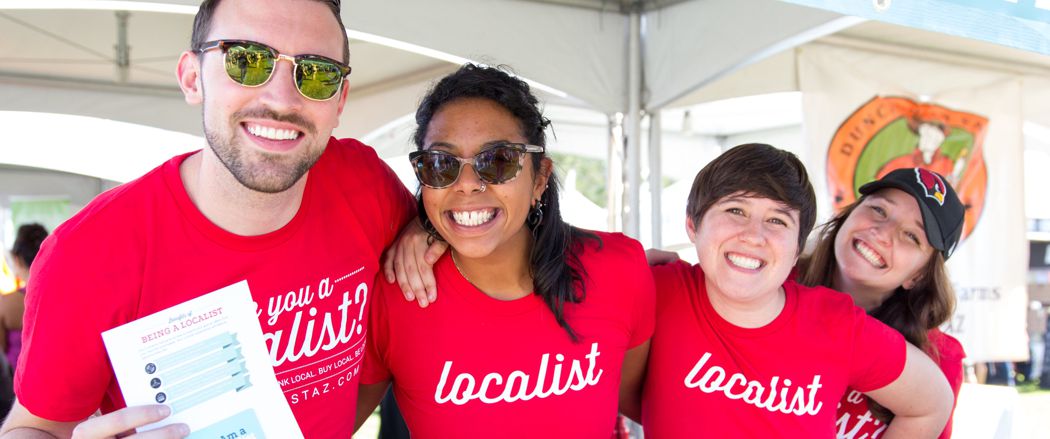
Arizona is Leading the Way
The state of Arizona is home to Local First Arizona. Many of its members and supporters are committed to strengthening Arizona’s economy through dynamic efforts as a growing movement in the state. But how can Arizona residents connect to our movement as a first step or participate at greater levels to ensure larger return on investment for our communities? How can you begin to plant the seeds to start such a movement in your state?
Small Steps = Big Impact
The first step is to buy local regularly, and shift greater levels of your spending to locally owned businesses. Why is buying locally important? Studies have shown a widespread return on investment, with up to four times more money staying in the local economy when you spend with a local business instead of a national chain. That translates to more jobs and revenue right in your hometown. For every $100 spent at a locally owned business, $43 remains in the economy compared to only $13 spent at a non-locally owned business, according to an Indie Impact Study Series by research firm Civic Economics.
These extra dollars circulate in the community when the local business owner hires the local accountant, graphic designer or website developer, for example, which ensures additional local job creation, preserving diverse and prosperous communities with opportunities for all.
Just the Facts
There are many compelling economic facts to support buying locally beyond the tangible benefits of sustaining and growing the number of unique businesses, which create a sense of place for our communities. Civic Economics analyzed data from independent retailers and restaurants and compared their impact on the local economy with chain retail stores and restaurants. The study found that local retailers return an average of 52 percent of their revenue to the local economy, compared with just 14 percent for chain retailers. Similarly, local restaurants re-circulate an average of 79 percent of their revenue locally, compared to 30 percent for chain eateries.
Amazon’s recent acquisition of Whole Foods made headlines, and is likely just the start of such massive conglomerate trends. A report from the Institute for Local Self-Reliance analyzed Amazon’s impact on employment, and the results speak volumes about the realities of current and future acquisitions.
The report found that the company had displaced enough sales at brick-and-mortar stores to force the elimination of 295,000 retail jobs. Amazon has only created 146,000 jobs, even when accounting for full-time, part-time and temporary employees, resulting in a net loss of about 149,000 American jobs. Many more American jobs will be lost without a change in consumer demand and spending habits.
3 Immediate Actions You Can Take
Compare prices before clicking “buy now” as you may find the price is cheaper at a locally owned business (especially when factoring in shipping and handling).
Move your money to a local community bank or credit union. Local banks and credit unions are much more likely to lend to local businesses at completion rates of 49 percent overall, compared to just 17 percent for the big banks. The more resources that community banks have translates to more loans they will be able to provide to Tucson’s businesses, which stimulates the economy and enables growth.
In Arizona, declare yourself a “Localist,” or become a business or nonprofit member to show you want to build a stronger Arizona economy. You can also volunteer to spread the movement and stay informed on all future events, stories, volunteer opportunities, webinars, and more!
These actions combined can increase your awareness and shift your dollars substantially to ensure you are contributing to a sustainable economic solution that is all about diversity, inclusiveness, and prosperity for the citizens of your local community.

Michael Peel is the Southern Arizona Director for Local First Arizona. He has spent his career developing and facilitating community-based partnerships and collaborations, creating innovative long-lasting programs responsive to community issues lacking needed support, and bringing key partners together to create community and statewide solutions.